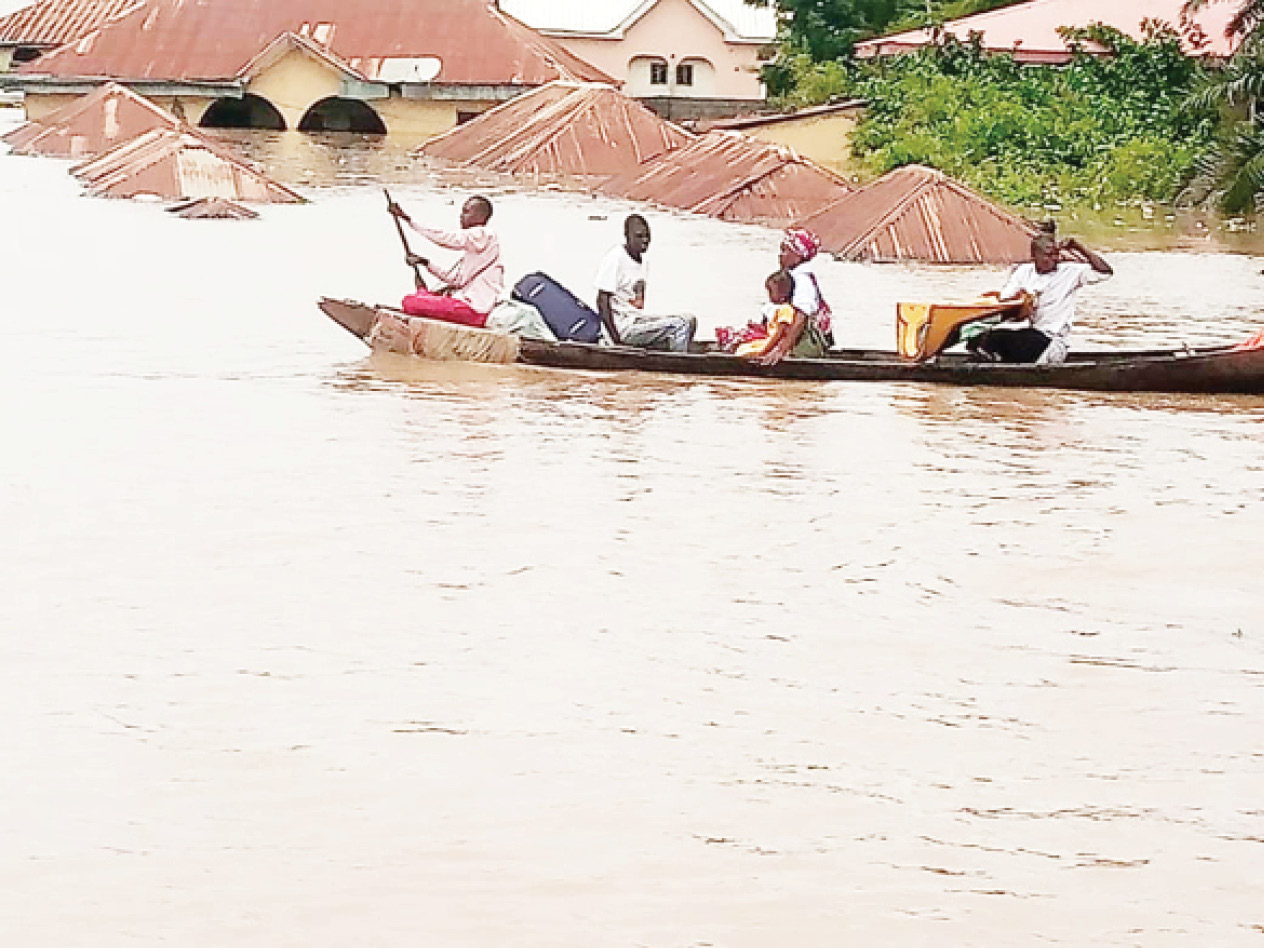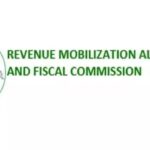State governments have failed to account for accruals from the Ecological Fund over the years estimated at over N1 trillion to tackle natural disasters, Daily Trust on Sunday reports.
This was even as erosion, flooding and other ecological disasters hit hard on some states at the peak of this year’s rainy season.
Daily Trust on Sunday reports that the presidency recently challenged states to give account of how they spent amounts in excess of N1trn allocated to them from the Ecological Fund to tackle flooding and other ecological problems.
Also, during the eighth edition of President Muhammadu Buhari’s scorecard through a media briefing in Abuja recently, the Minister of Environment, Mohammed Abdullahi, stressed the need for the governors to account for the billions of naira they collected over the years.
How petrol, other supplies spur NNPC’s N1.6trn road projects
FG to turn abattoir wastes to manures, liquid fertiliser for farmers
Many states, including Benue and Kogi in the North Central; Bayelsa, Rivers and Delta in the South South, had cried out for help from the federal government as they battled to provide succour for victims of flooding that were forced out of their homes and left without shelter, food and potable water.
Checks by Daily Trust on Sunday show that about N1trn, representing 2.2 per cent of the total budget for 2018, 2019 and 2023, was budgeted for ecological and disaster management.
In 2018, 2.2 per cent of the estimated N9.120trn budget, amounting to N198bn, was set aside for the Ecological Fund. In 2019, 2.2 per cent of the budget of N132bn was allocated for the fund, while in July, 2021, the Federal Executive Council (FEC) reportedly approved N16.04bn Ecological Fund for projects across 12 states for the third and fourth quarters of 2020.
Although the 2023 budget is yet to be passed, an estimated 2.2 per cent of the N21trn budget indicates that N462bn has been earmarked for the Ecological Fund.
House probe
Worried by the trend, the House of Representatives, in June, initiated a probe into the utilisation of the fund for the past 10 years.
Specifically, the house mandated a committee to, among other things, “investigate the total consolidated mandatory accruals into the Ecological Fund from 2010 to March, 2022, and that the committee should equally evaluate the disbursement of the Ecological Fund in line with the provision of the 1999 constitution from 2010 to March, 2022.
To establish facts, the house asked the committee to conduct public hearings with all the major stakeholders on the effective and efficient utilisation of the Ecological Fund and report back within six weeks for further legislative action.
The resolution to probe the utilization of the fund was sequel to a motion moved by Hon Femi Bamisile, titled: “Need to Investigate the Total Consolidation Accrual and Utilisation of Ecological Fund”.
Bamisile had, while moving the motion on the floor of the house, noted that the federal government, the 36 states of the federation, the 774 local government areas and the Federal Capital Territory (FCT) received funds through the Federal Allocation Committee as shares from the Ecological Fund.
He stressed that apart from the annual statutory appropriations, four agencies of the federal government drew funds from the one per cent share of the federal government allocated to the Ecology and Derivation Fund according to their respective enabling laws.
He concluded that, “The house is worried that efforts at making beneficiaries of the Ecological Fund accountable for their accrued shared funds in the last few years have been ignored.”
Presidency tasks governors
The presidency has continued to fault public attention on the federal government, insisting that the state and local governments received the chunk of the Ecological Fund set aside for disaster management.
Presidential spokesman, Mallam Garba Shehu, in August, issued a statement in which state governors were enjoined to rise to the responsibilities of their office by responding to the needs of their citizens in the face of growing floods and other ecologically-related disasters.
This was in the wake of growing appeals from groups and individuals, including some of the affected state governments, for federal government’s assistance.
Findings indicate that statutorily, the revenue allocation formula provides that 2.32 per cent of derivation funds was set aside for ecology and disaster management and the amount is shared across the three tiers of government.
Garba noted in the statement that while the Buhari administration remained committed to efforts to alleviate the suffering of citizens affected by flooding and other natural disasters, other tiers of government equally had a responsibility to play their parts in disaster management.
He said, “It is high time citizens began to ask relevant state and local government agencies how they spend their share of the Ecological Fund,” noting that calls for the federal government to respond to all outbreaks of natural disasters did not display an understanding of the Nigerian law.
He further said, “We call on governors of those states that have swung into action and engaged the necessary gear to continue with their efforts, and those that have not to immediately face their duties of managing the flooding within their jurisdictions – that is the job the president, governors and council chairmen have been elected to do.”
Sharing formula
Daily Trust on Sunday findings indicates that under the prevailing revenue allocation formula, 2.32 per cent of derivation funds are set aside for ecology and disaster management.
Of this amount, the 36 states and the FCT get 0.72 per cent; the 774 local governments get 0.6 per cent, adding to 1.32 per cent, leaving a balance of one per cent to the government of the federation.
Also, the National Emergency Management Agency (NEMA) takes 20 per cent of the amount allocated to the federal government, the North East Development Commission (NEDC) collects 10 per cent, the National Agricultural Land Development Authority (NALDA) 10 per cent, while the National Agency for the Great Green Wall (GGW) gets 0.5 per cent; leaving 0.55 of the one per cent to the government at the centre for ecological protection and disaster management.
States fail to give account
Some of the states affected by ecological disasters have failed to give account of the Ecological Fund accrued to them.
Daily Trust on Sunday learnt that the Benue State Government has failed to give account although N5bn was said to have been received from the federal government as Ecological Fund in the past seven years to tackle erosion.
Critics allege that despite receiving the huge amount, issues of ecological disasters persist in the state, with the recent flooding as a case in point.
The Commissioner for Environment and Water Resources in the state, Dr Godwin Oyiwona, did not respond to questions from our reporter about the level of intervention from the federal government to mitigate ecological problems in Benue.
Oyiwona’s counterpart in the Ministry of Finance, David Olofu, also did not respond to calls and a message on the same matter. He directed our reporter to Oyiwona.
Kula Tersoo, the Head of Communication of the All Progressives Congress (APC) Governorship Campaign Council in Benue, asked: “What has happened to the over N5bn ecological funds sent to the state for the past seven years that erosion and flooding keep ravaging the state year in year out?”
In Anambra State, the Commissioner for Environment, Mr Felix Odumegwu, said he did not have the accurate figure because the present government was new in office.
He explained that, “I know that the state has attracted some counterpart funding from the World Bank to deal with erosion in the state in the area of the NEWMAP project.
“I don’t have the figure of how much the federal government has given to us. We are very young in office and are studying the books.”
Similarly, the Commissioner for Environment in Kogi State, Victor Omofaye, said he could not establish the amount received as intervention from the Ecological Fund.
By Fidelis Mac-Leva (Abuja), Hope Abah Emmanuel (Makurdi) & Tijani Labaran, Lokoja

 Join Daily Trust WhatsApp Community For Quick Access To News and Happenings Around You.
Join Daily Trust WhatsApp Community For Quick Access To News and Happenings Around You.


